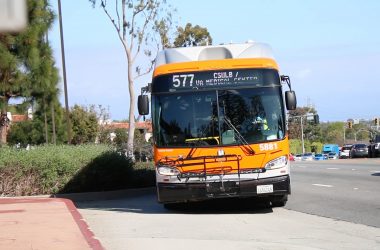When the post-Sept. 11 GI Bill became effective in August, Cal State Long Beach student veterans were given an opportunity to receive greater benefits while attending college.
Although the U.S. Department of Veterans Affairs initially announced that qualified beneficiaries will receive their housing and supplies checks in 30 days of university certification, students are experiencing otherwise. According to a Student Veterans of America survey, students have waited an average of 56 days before receiving their first checks.
The timeliness of actual benefit arrivals was questioned when numbers weren’t matching up. If a CSULB student was certified in early August, they might not have received their housing and supply benefits at the start of the semester; the 56 days would not pass until mid-September.
The director of Veterans University at CSULB, Patrick O’Rourke, recognizes the problems students are currently facing under the new bill.
“It is a brand new program and it’s got a lot of moving parts,” O’Rourke said. “There’s going to be lessons learned, maybe some mistakes made and some challenges here this semester. There already have been.”
The “moving parts” that O’Rourke referred to is the GI benefits application process.
Before even attending class, student veterans are required to have a solid — if not final — schedule of their classes. From there, students present their schedules with a certification to prove they are eligible for GI benefits, which may take two to four weeks.
Lynisha McDuel, a program assistant at Veteran Affair Services, is the sole person qualified to certify student veterans into CSULB, according to O’Rourke.
If a student veteran is eligible for 100 percent of the post-Sept. 11 GI benefits, the VA will pay $42 per unit and $2,152 directly to students each month for supplies and housing.
According to O’Rourke, there are thousands of applications waiting to be certified. Student veterans who haven’t received their full benefits in the mail find that they may be struggling to pay for their books and housing.
“A lot of [student veterans] rely on this money to pay their bills with,” McDuel said. “This is their paychecks and this is how they support themselves.”
There are short-term alternatives, such as loans, for students who are short on cash. For those who are not approved for a loan, not much can be done by the waiting students or CSULB, O’Rourke said.
“[Veterans University and Veteran Affairs on campus] will try to be as transparent as possible to support veterans. I often advise veterans to read, read the news, the updates on the bill,” O’Rourke said.
Some student veterans are also facing the issue of student fee payments. Although the new bill allows student tuition to be deferred, some students who registered for fall classes before August had to pay tuition out-of-pocket since the bill was not yet effective.
Steve Dolan, a junior veteran biology student, registered for his classes in May and is currently waiting for three checks from the VA.
“Right now, the only payment really delayed is my reimbursement for my tuition,” he said. “I’ve already been told by a VA official to expect my housing and supplies check in October. If [those checks] got delayed for some reason, that will make me mad. The new [GI Bill] system will become discouraging.”
Student veterans can find support on campus through VetNet, a student-organized program to network and share experiences.
VetNet treasurer Andrew Choi encourages veterans on campus to attend VetNet’s weekly Brown Bag Lunch, held every Thursday from 11:30 a.m. to 1:30 p.m. in the University Student Union.
“[VetNet] is here to provide veteran students extra help for when they need to have their questions answered. We are there,” Choi said.



